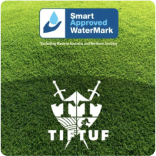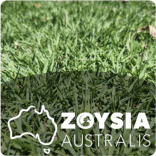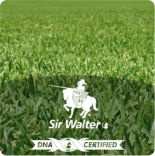How Rainwater Benefits South East Queensland Lawns in Autumn
Introduction
When it comes to nurturing vibrant and healthy lawns in South East Queensland during autumn, rainwater emerges as a valuable resource. In this article, we will explore the benefits of rainwater for South East Queensland lawns in autumn. While rainwater offers numerous advantages, we'll also highlight the significance of supplemental irrigation to ensure optimal nourishment for your lawn.
Rainwater: A Natural Boost for Your Lawn
Rainwater provides several benefits when it comes to irrigating lawns, particularly during autumn. Let's delve into the advantages it brings and how it contributes to the health and vitality of South East Queensland lawns.
1. Natural Nutrients and Moisture
One of the primary benefits of rainwater is its natural composition. Rainwater carries essential nutrients and minerals that promote the growth and overall health of your lawn. Moreover, it provides the perfect amount of moisture required by the grass, ensuring proper hydration without the risk of overwatering. However, it's important to note that rainwater alone may not fulfill all the nutritional needs of your lawn.
2. Environmental Friendliness
Embracing rainwater as a primary irrigation source is an eco-friendly choice. By utilizing rainwater, you reduce the reliance on artificial irrigation systems, thereby conserving water resources. Additionally, rainwater is free from chemicals and additives commonly found in tap water, making it a safer and more environmentally conscious option for nourishing your lawn and preserving the surrounding ecosystem.
3. Enhanced Soil Health
Rainwater plays a crucial role in maintaining the health of the soil. It helps in breaking down compacted soil, improving its structure and permeability. This allows the grass roots to penetrate deeper and access vital nutrients. Rainwater also promotes the growth of beneficial microorganisms in the soil, creating a thriving ecosystem for your lawn.
4. Reduction in Watering Costs
One of the significant advantages of rainwater is its cost-effectiveness. By harnessing the power of natural rainfall, you can significantly reduce your water bill and save money. Rainwater is freely available and eliminates the need for excessive water consumption through artificial irrigation systems. However, it's important to note that during dry spells, supplemental irrigation may be necessary.
The Role of Supplemental Irrigation
While rainwater provides numerous benefits for South East Queensland lawns in autumn, it is crucial to acknowledge that it may not be sufficient to completely nourish your lawn. Supplemental irrigation plays a vital role in ensuring your lawn receives adequate hydration and nutrients. Here are some tips for effectively combining rainwater and supplemental irrigation:
1. Monitor Rainfall Levels
Keep a close eye on the amount of rainfall your lawn receives. Monitoring rainfall levels helps you determine whether supplemental irrigation is necessary to meet your lawn's hydration requirements. This will prevent under- or overwatering, allowing your lawn to thrive.
2. Adjust Irrigation Schedule
Based on the rainfall levels, adjust your irrigation schedule accordingly. During periods of abundant rainfall, you can reduce the frequency and duration of supplemental irrigation. On the other hand, during dry spells, increase the frequency and duration to compensate for the lack of rainwater.
3. Smart Watering Techniques
When supplementing with manual irrigation, employ smart watering techniques to maximize efficiency. Use methods such as drip irrigation or soaker hoses to minimize water wastage and ensure targeted hydration for your lawn. These methods deliver water directly to the roots, reducing evaporation and runoff. Additionally, water your lawn during the early morning or late evening to minimize water loss due to evaporation.
4. Use Rainwater Harvesting
Consider implementing a rainwater harvesting system to capture and store rainwater for later use. This way, you can utilize the collected rainwater during periods of limited rainfall, reducing the need for excessive supplemental irrigation.
5. Regular Lawn Maintenance
Maintaining a healthy lawn through regular care is crucial for optimal growth, even when utilizing rainwater and supplemental irrigation. Proper lawn maintenance includes tasks such as mowing at the appropriate height, removing weeds, and aerating the soil. By keeping your lawn in good condition, it can better absorb and utilize both rainwater and supplemental irrigation.
FAQs about Rainwater and Supplemental Irrigation for South East Queensland Lawns
1. Q: Can I rely solely on rainwater for my lawn's irrigation needs?
A: While rainwater provides significant benefits, it may not be sufficient to completely nourish your lawn. Supplemental irrigation is often necessary, particularly during dry periods, to ensure your lawn receives adequate hydration and nutrients.
2. Q: How often should I water my lawn if I rely on rainwater?
A: The frequency of supplemental irrigation depends on the amount of rainfall your lawn receives. Monitor rainfall levels and adjust your watering schedule accordingly to meet your lawn's hydration requirements.
3. Q: Can I use tap water for supplemental irrigation if rainwater is not available?
A: Yes, tap water can be used for supplemental irrigation when rainwater is scarce. However, be mindful of water conservation and avoid overwatering your lawn.
4. Q: Are there any specific times of day to water the lawn with supplemental irrigation?
A: Water your lawn during the early morning or late evening to minimize water loss due to evaporation. These times allow the grass to absorb water effectively without the heat of the sun causing excessive evaporation. HOWEVER, as winter approaches refrain from watering in the late evening or during the night if you can, event if it may seem like a convenient time, as it can lead to detrimental fungal issues. During winter nights, temperatures drop, and the lack of sunlight and cooler conditions create a conducive environment for fungal growth. When you water your lawn in the late evening, the grass blades and soil remain damp for an extended period, promoting fungal diseases such as brown patch or dollar spot.
Fungi thrive in moist conditions, and with the prolonged period of moisture during the night, they can quickly spread and infect your lawn. To avoid these fungal issues, it's best to water your lawn earlier in the day, allowing sufficient time for the grass blades and soil to dry before nightfall. This practice helps maintain a healthier lawn and reduces the risk of fungal diseases during the winter season.
5. Q: Can I use automated irrigation systems in conjunction with rainwater?
A: Yes, automated irrigation systems can be used alongside rainwater. However, ensure that the system is properly adjusted and programmed to avoid overwatering when rainwater is already present.
6. Q: Should I adjust the amount of supplemental irrigation based on the season?
A: Yes, the amount of supplemental irrigation needed may vary depending on the season. During hot and dry periods, you may need to increase irrigation, while during cooler and wetter seasons, you can reduce it.














